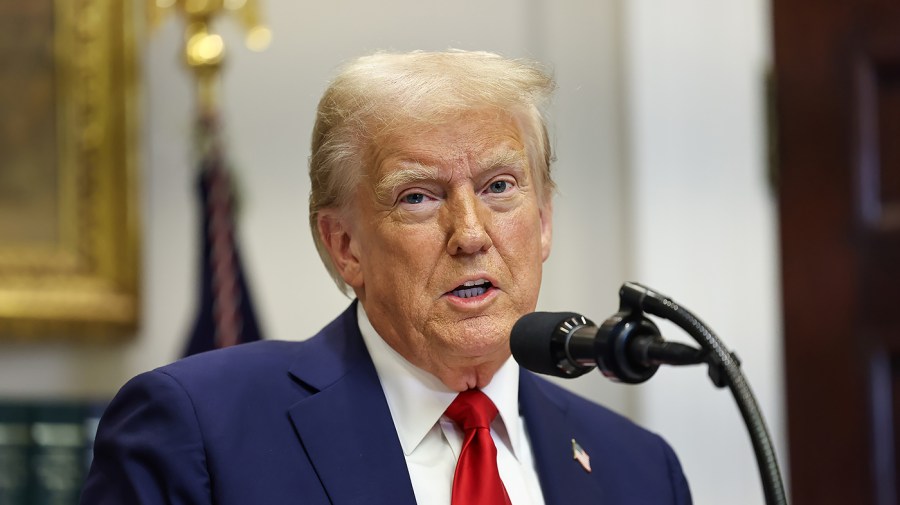
Donald Trump made himself a force in U.S. foreign policy before even being sworn in. He’s already claimed a foreign policy victory with an advisor flying to Qatar and successfully negotiating an Israel-Hamas ceasefire, sidelining Biden administration officials.
Based on what he has said since the election, here is a list of what might happen in Trump’s first month in command of U.S. foreign policy.
- Aid to Ukraine will continue for some time: Trump promised to end the Russia-Ukraine war on his first day in office, but he recently expanded the timeline for a ceasefire to six months. Despite his misgivings, Trump has also been less critical of Zelensky since being elected. Russia continues to make battlefield gains while Biden has poured more military aid to Ukraine on his way out the door. Fully $4 billion in foreign aid remains unspent. While it’s unlikely that Trump will allow Ukraine to fire long-range missiles into Russian territory, he might float the earmarked aid to Ukraine in the hopes of securing better ceasefire terms with Russia later in the year.
- Tariffs levied against U.S. neighbors first: It would be difficult for Trump to reform U.S. trade policy overnight, but there are some changes that he can make from day one. Under the International Emergency Economic Powers Act of 1977, Congress grants the president authority to use tariffs to address “unusual and extraordinary” peacetime threats. It might be difficult to justify a global tariff system under that mandate — but Trump previously invoked the act in 2019 when he threatened to levy tariffs against Mexico for failing to halt illegal immigration to the U.S. Recently, Trump has threatened Mexico and Canada with tariffs unless they enact policies to better police their borders. Trump could put those tariffs into action in his first month in office if he’s not pleased with the response from US neighbors.
- “Hurry up and wait” on China: Trump wants to appear strong on China, but he also doesn’t want to tank opportunities to bring them to the negotiating table. Trump recently invited Chinese President Xi Jinping to his inauguration, a largely unprecedented offer for a rival foreign leader. Xi declined the invite but sent a high-level official in his place (much higher level than would have normally attended.) Expect that if China acts against the U.S., Trump will retaliate quickly. The Trump team is on the lookout for opportunities to alter the balance of power and crises will give them that chance. But China knows that, so expect them to be quiet in these opening months. For them, there is too much opportunity and too much risk. China is the central challenge for Trump’s foreign policy — and that’s unlikely to change. Experts disagree on whether Trump will be able to strike a deal with Chinese leadership, but China’s economic stagnation in the post-COVID era opens the door to a rethinking of the relationship.
- The end of sanctions on Syria: With the fall of Bashar Assad’s regime in Syria, the interim government led by Hay’at Tahrir al-Sham has made several requests to the Biden administration to end sanctions imposed against Syria, which restrict the import of essential goods like wheat. The Biden administration has been critical of the new government’s ongoing war in the northeast with the Kurds, who previously aided the U.S. government in its war against ISIS. Trump has publicly stated that he wants to allow the conflict in Syria to play out. Expect to see sanctions against Syria slow or end within Trump’s first month in office.
- No annexations…yet: Despite Trump’s recent prolific social posts on the possibility of U.S. annexation of Canada, Greenland and the Panama Canal, don’t expect that anything will happen soon. Negotiations over territory take time, even once earnestly entered — and these countries have indicated no interest in coming to the table. Trump might still pursue annexation of one or more of these parts of the world. But those things take longer than 30 days.
- No North Korea detente: When Trump took office in 2017, he numbered North Korea among his top foreign policy priorities. His relationship with North Korean leader Kim Jong Un was notably close, but don’t expect that to be as meaningful during this term in office. North Korea is one of the most isolated countries in the world, and it was at a diplomatic nadir with its sole ally China in the late 2010s. During that era, it made sense to pursue talks with America. Today, North Korea’s nuclear missile capabilities have grown and its burgeoning entente with Russia has encouraged it to deploy troops to assist in the invasion of Ukraine. With more partners available to it and a more secure nuclear position, it’s unlikely that Kim will be eager to return to the table with Trump, which bore little fruit the last time around.
During his first term, Trump had little foreign policy experience and was thwarted by his staff. Trump will be far more experienced and far less constrained this time around, so he will be well-positioned to implement many of his priorities.
It’s unclear which of these issues will remain priorities for the impulsive president-elect. No Nostradamus on Trump’s foreign policy has emerged — but these are my best predictions for a famously unpredictable president.
Ransom Miller is a research associate with the Institute for Global Affairs.












